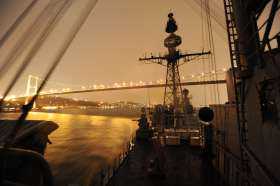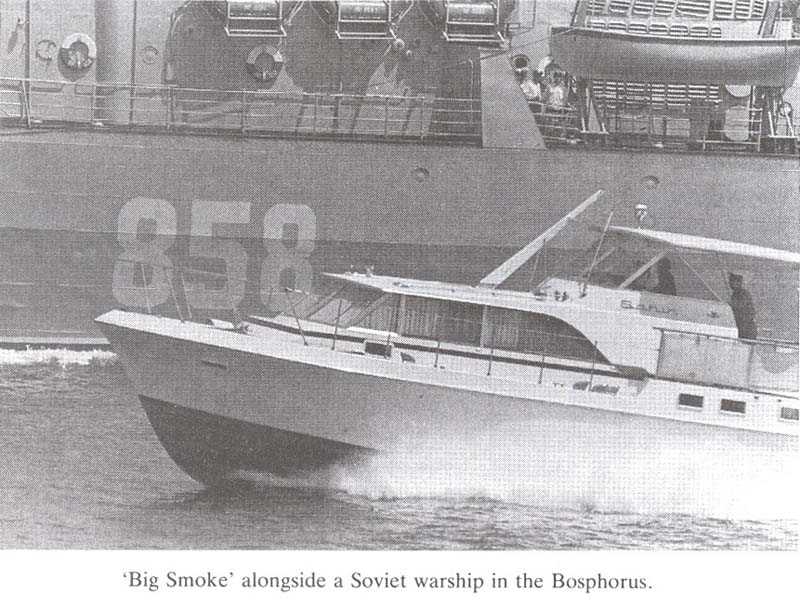Despite the best efforts of Ankara’s allies in Washington during the final hours of the Congressional session, the U.S. Senate refused to act Wednesday on a free give-away of advanced American naval vessels to Turkey. Earlier this week, the House had approved the controversial measure, following a contentious debate, reported the Armenian National Committee of America.
“We join with our Greek American friends in thanking Congressmen Engel, Sherman, Bilirakis, and Sarbanes for opposing this controversial measure giving away two guided missile frigates to an increasingly arrogant and antagonistic Turkey, and welcome the Senate’s decision to block efforts to ‘fast-track’ passage of this controversial measure in the final hours of the 112th Congress,” said Aram Hamparian, Executive Director of the ANCA. “This most recent setback for Turkey reflects the growing bipartisan understanding on both sides of Capitol Hill about the real price America is paying for Turkey’s growing hostility to U.S. interests and allies. Ankara’s failure is yet another signal that the era of Turkey’s having a blank-check in Washington is over.”
In a letter circulated earlier this week on Capitol Hill, the ANCA stressed that: “Such a transfer would materially strengthen Ankara’s naval capabilities at a time when it is using its maritime fleet to aggressively challenge the right of Cyprus to explore its off-shore energy resources, and is seeking to obstruct the ability of Greece to protect its territorial waters.” The ANCA also emphasized that: “Transferring these vessels would also send a dangerous signal to Turkey’s leaders that our government endorses its military occupation of Cyprus, its increasingly belligerent stance toward Israel, its blockade of Armenia, its meddling in the Nagorno Karabakh conflict resolution process, or, for that matter, its violations against the rights of Christians, Kurds, and other minorities.” The letter closed by noting that: “Such material rewards and moral endorsements are neither warranted, nor constructive. In fact, they will work against our nation’s regional security interests.” The American Hellenic Institute, Hellenic American Leadership Council, and other Greek American groups also weighed in against the transfer.
The U.S. House, on December 31st, considered this transfer as part of H.R.6649, a measure added to the “Suspension Calendar” under expedited procedures requiring a two thirds vote. The House adopted H.R.6649 after considerable debate, including a defense of the legislation by Rep. Ros-Lehtinen and statements in opposition from Representatives Eliot Engel (D-NY), the incoming Ranking Democrat on the Foreign Affairs Committee, and Brad Sherman (D-CA), Gus Bilirakis (R-FL), and John Sarbanes (D-MD). The absence of Senate action at the end of the 112th Congress will mean that any legislation authorizing such a transfer will need to be re-introduced for consideration by the 113th Congress.
Congressman Brad Sherman, a senior member of the Foreign Affairs Committee, opposed H.R.6649 both on its merits and on the process being used to secure its consideration in the final hours of the Congressional session, noting: “Woodrow Wilson noted that Congress in committee is Congress at work. Congress ignoring the committee process is a Congress that doesn’t work. This bill has not been the subject of hearing and, more importantly, a markup in the Foreign Affairs Committee. And in the dead of night, provisions to transfer two frigates to Turkey, a controversial provision, was added to this otherwise innocuous bill… Send this bill back to committee. Let us have a real discussion. Let us follow the rules, not suspend the rules, when we’re dealing with a matter of this importance to our foreign policy in the eastern Mediterranean.”
Congressman Engel, in his remarks, stressed: “Some people say this should continue because, after all, Turkey is an ally and we need to help them. Well, I look at it the other way. They’re a NATO ally, so they have responsibility. And the way they’re acting has been anything but responsible. This is not an inconsequential or trivial matter.”
Representative Sarbanes, in his comments, remarked that: “This is not a non-controversial bill. I know it’s being brought here on suspension as though it is, and I’m sure in the past when we’ve had these transfers of vessels, excess defense materials and so forth, often that is a non-controversial action to take. In this case, it’s anything but non-controversial, and I’m surprised, frankly, that the majority would bring the bill to the floor in this form.”
In his remarks, Rep. Bilirakis explained his opposition to H.R.6649, noting that: “the Turkish navy, as recently as last year, held naval live-fire exercises in the eastern Mediterranean. These provocative exercises took place near the natural gas fields of Israel and the Republic of Cyprus and threatened to disrupt peaceful and productive economic activity. Instead, Mr. Speaker, it is my hope that, in the eastern Mediterranean, Congress will continue to work to foster the relationships between the United States, Greece, Israel, and Cyprus in order to promote and foster issues of mutual, economic, and diplomatic importance.”
Congressional scrutiny of the proposed transfer of advanced naval vessels, which are described by the U.S. Navy as having been designed, among other missions, to support and protect amphibious landing forces, was heightened by Turkey’s record of aggression in neighboring littoral areas, most notably its 1974 invasion and ongoing military occupation of Cyprus, as well as its false claims to sovereign Greek islands in the Aegean Sea, and its regular incursions into both Greek and Cypriot territorial waters.




